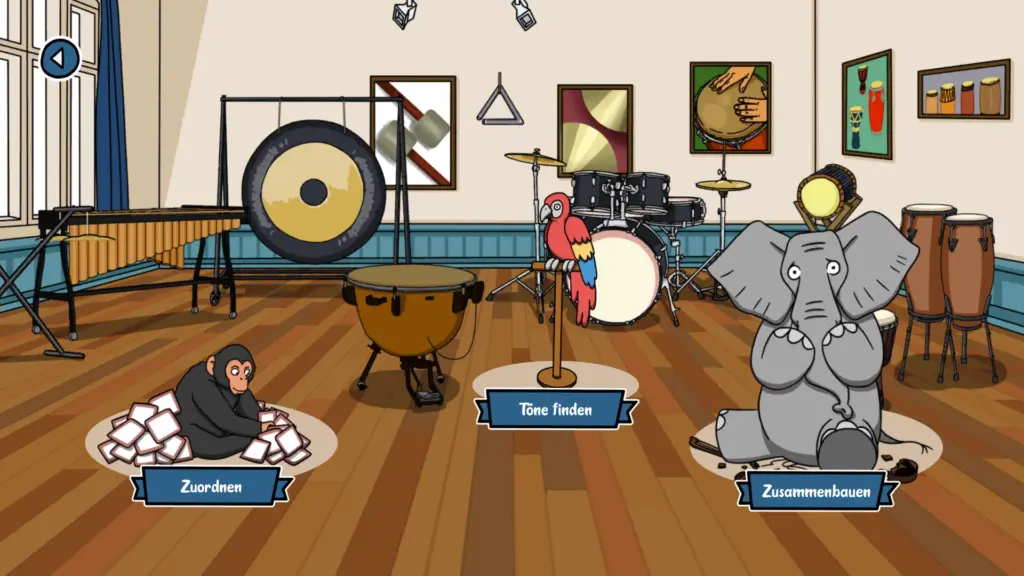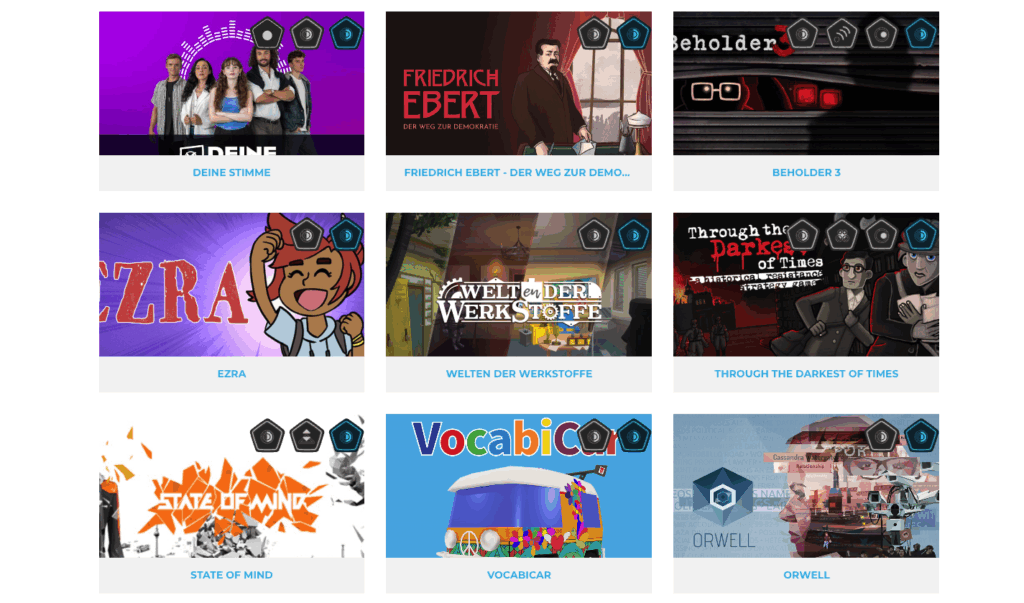Serious games—games designed for educational, training, or health purposes—have become a vital part of digital learning and development. But how accurately have predictions about their future panned out, and what’s next?
The game association published five theses on the future of serious games. However, this was eight years ago. In this blog post we’ll take a look at what has become of them – and make some predictions of what the future of Serious Games may look like.
Revisiting predictions from 2017
1️⃣ Market potential: after a turnover of $2.7 billion in 2016 with serious games, the game association predicted sales of $9 billion in 2023. In fact, it was $9.45 billion worldwide.
2️⃣ Mobile learning is becoming increasingly important – through podcasts, YouTube, but also through games. A lot has happened in recent years, and apps like Brilliant or Duolingo have been booming. Duolingo alone went from 18 million monthly users in 2016 to 116.7 million monthly users in 2024. Serious games work extremely well on mobile platforms. I would say – prediction fulfilled

3️⃣ Health games were expected to become more significant. Back then, serious games were mainly relevant in the educational sector. As of 2025, there are numerous games on topics such as weight loss, and even event formats have emerged (e.g., the GiG xLab in Mannheim). Health games have “become more significant,” for sure, but there is still a lot of room for projects to define the space. A Google search for “Health games” still names “Re:Mission” as the prime example, which is a game from 2006.
4️⃣ VR and AR enrich serious games. I’m conflicted here – especially VR seems to have fallen short of its potential. Looking at all games that have been nominated for a German Video Game Award in the category “Serious Games”, I don’t see any VR or AR games in any year since 2016. In my experience, AR applications have a higher reach than VR games, but they are often perceived more as gimmicks. However, the phrasing “enrich” is very diplomatic, so this prognosis might be true just by its wording.
5️⃣ Artificial intelligence will also become more important for serious games. The thesis comes from a time before ChatGPT and mainly refers to “meaningful behavior of characters,” i.e., classic video game AI. I haven’t really noticed much development in the usage of classic video game AI – but generative AI certainly plays an important role in the development and use of serious games.
Predictions for the future
Overall, the game association had quite a good hit rate when gazing into the crystal ball in 2017. In our view, however, serious games have mainly gained one thing in recent years: acceptance. More and more institutions such as museums or educational organizations are seeing the vast potential and want to develop their own applications. Games that are tailored specifically to their needs – for onboarding, compliance, skills training, and more.

The quality of the games has also improved significantly. Unfortunately, the sector is still chronically underfunded – after all, a good serious game requires an appropriate development budget. Another big trend has been diversity and inclusion. Serious Games increasingly reflect diverse experiences and audiences – oftentimes better than commercial games.
🔮 Where is it headed? We believe serious games will be much more accessible in the future. The days when I first had to start a download on the PC are over – grab your phone, scan a QR code, and you’re off. Serious games will become seamlessly integrated into employees’ or students’ daily routines—micro-learning scenarios, just-in-time training, and gamified “nudges” delivered at the point of need.
With more good example cases, acceptance – and thus budgets – will continue to rise. As tools for data capture and analysis improve, companies will be able to see (and show) direct, measurable ROI from serious game initiatives. Many current Serious Games fail to truly measure their impact, and we hope that this will change and be more on the radar of developers.
Last but not least, the quality of Serious Games is increasing at a rapid pace. While Serious Games often had lower production values in the past, new tools and bigger budgets have allowed the Serious Games market to be competitive at the game quality level – which benefits everybody in the space and makes the games better and more fun.
And who knows, maybe one day we’ll see a game at the DCP that wins both “Best Serious Game” and “Best Game”? If you want that too, contact us 😉 At Off The Beaten Track, we’re excited to help organizations leverage these trends—applying the latest technology, creative design, and learning science to craft serious games that inspire, engage, and deliver results.







